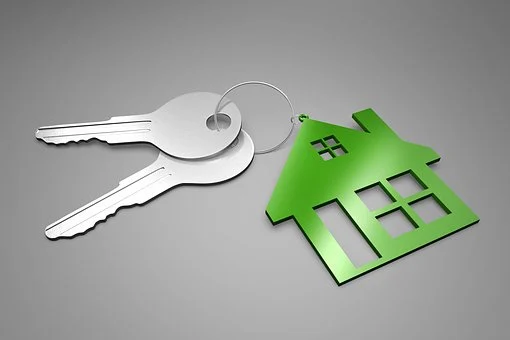No Deposit Mortgages Make a Comeback in the UK: Are They Worth the Risk?
Introduction
In recent years, the housing market in the UK has witnessed the resurgence of a financing option that was once considered rare: no deposit mortgages. These types of mortgages, which allow buyers to secure a home loan without the need for a hefty down payment, have become increasingly popular. However, before diving into the world of no deposit mortgages, it’s essential to understand how they work and the potential risks and rewards involved.
Understanding No Deposit Mortgages
A no deposit mortgage is a type of home loan that eliminates the need for a down payment, typically required by traditional mortgage lenders. Instead of providing a lump sum upfront, buyers can finance the entire purchase price of the property. This may sound enticing, especially for first-time buyers or those struggling to save for a down payment, but it’s crucial to evaluate the pros and cons before committing to such a financial arrangement.
Pros and Cons of No Deposit Mortgages
Pros of No Deposit Mortgages
Owning a home sooner: One significant advantage of no deposit mortgages is the ability to become a homeowner without a prolonged saving period.
Easier access to homeownership: No deposit mortgages open the door to homeownership for individuals who may not have substantial savings or access to gifted funds.
Investment opportunity: By utilizing a no deposit mortgage, buyers can potentially invest their savings in other assets, such as stocks or businesses.
Cons of No Deposit Mortgages
Higher interest rates: Since lenders take on a greater risk by providing a no deposit mortgage, they often compensate by charging higher interest rates.
Limited product availability: No deposit mortgages are not widely available and are typically offered by specific lenders who are willing to take on the associated risks.
Increased debt burden: Opting for a no deposit mortgage means borrowing the full purchase price of the property, resulting in a higher level of debt.
Are No Deposit Mortgages Worth the Risk?
The decision to pursue a no deposit mortgage ultimately depends on an individual’s financial circumstances and long-term goals. While these mortgages can offer an opportunity for homeownership without a substantial upfront payment, they also come with inherent risks. It’s vital to carefully consider one’s financial stability, future income prospects, and risk tolerance before deciding if a no deposit mortgage is worth pursuing.
Examining the Comeback of No Deposit Mortgages in the UK
In recent times, the UK housing market has witnessed the resurgence of no deposit mortgages. This comeback can be attributed to various factors, such as increasing demand from first-time buyers, government initiatives to boost homeownership, and innovative offerings from lenders.
One notable player in this space is Skipton Building Society, a UK mortgage lender that has introduced 100% loans, allowing buyers to secure a mortgage without a deposit. This move has attracted attention and raised questions about the implications of zero deposit mortgages.
How Do Zero Deposit Mortgages Work?
Zero deposit mortgages operate similarly to traditional mortgages, with the key distinction being the absence of a down payment. Instead, the lender finances the entire purchase price of the property. The buyer is still required to make regular monthly mortgage payments, including principal and interest, as with any other mortgage. The loan is secured against the property itself, and failure to make payments can result in foreclosure.
Is a Zero Deposit Mortgage a Good Idea?
The suitability of a zero deposit mortgage depends on various factors unique to each individual. Here are some points to consider when evaluating whether a zero deposit mortgage is a good idea:
Financial Stability: Buyers should assess their financial stability and ability to handle the monthly mortgage payments without the buffer of a down payment. It’s crucial to consider factors such as job security, income stability, and potential future expenses.
Affordability: While a zero deposit mortgage eliminates the need for an upfront payment, buyers must ensure they can comfortably afford the monthly mortgage payments based on their income and other financial obligations.
Long-term Financial Goals: Buyers should evaluate their long-term financial goals and consider the impact of a zero deposit mortgage on their overall financial well-being. It’s essential to assess whether the benefits of homeownership outweigh the potential risks and costs.
Factors to Consider Before Applying for a No Deposit Mortgage
Before diving into a no deposit mortgage, it’s essential to consider the following factors:
Interest Rates: No deposit mortgages often come with higher interest rates compared to traditional mortgages. Buyers should carefully evaluate the long-term cost implications and calculate the total interest payments over the life of the loan.
Lender Requirements: Different lenders have varying eligibility criteria for no deposit mortgages. Buyers should research and understand the specific requirements, including credit score, income verification, and employment stability.
Additional Costs: Homeownership entails additional expenses beyond the mortgage payments, such as property taxes, insurance, maintenance, and potential repairs. Buyers should factor in these costs to ensure they can afford the overall financial commitment.
Eligibility Criteria for No Deposit Mortgages
While eligibility criteria may vary between lenders, here are some common requirements for obtaining a no deposit mortgage:
Good Credit Score: Lenders typically require a solid credit history and a good credit score to mitigate the risks associated with a no deposit mortgage.
Stable Income: Buyers must demonstrate a stable income source and provide income verification to assure lenders of their ability to make regular mortgage payments.
Affordability Assessment: Lenders will assess the buyer’s affordability by evaluating their income, existing debt obligations, and overall financial stability.
Alternatives to No Deposit Mortgages
For buyers who may not meet the eligibility criteria for a no deposit mortgage or prefer alternative options, several alternatives can be explored:
Saving a Down-Payment: Buyers can choose to save for a down-payment. Which can help secure a traditional mortgage with potentially lower interest rates and more favourable terms.
Shared Ownership: Shared ownership schemes allow buyers to purchase a portion of the property and pay rent on the remaining share. This can provide an opportunity to enter the housing market with a smaller deposit.
Help-to-Buy Schemes: Government-backed help-to-buy schemes offer financial assistance to first-time buyers, providing equity loans or shared equity arrangements to reduce the initial deposit requirement.
The Future of No Deposit Mortgages
The resurgence of no deposit mortgages in the UK suggests that there is a demand for alternative financing options in the housing market. However, the future of these mortgages remains uncertain and dependent on various factors, including market conditions, regulatory changes, and lender appetite for risk. It’s important for buyers to stay informed and seek professional advice before making significant financial decisions.
Conclusion
No deposit mortgages offer a potential pathway to homeownership for buyers who may not have substantial savings for a down payment. However, they also come with risks and considerations that need to be carefully evaluated. Buyers should assess their financial situation, consider long-term goals, and weigh the pros and cons before committing to a no deposit mortgage. Factors such as interest rates, lender requirements, affordability, and alternative options should all be taken into account.
It is crucial to approach the decision with a thorough understanding of the implications and potential risks involved. While the allure of owning a home without a down payment may be tempting, buyers must consider their financial stability, long-term affordability, and the impact on their overall financial well-being.
References:
- “No deposit mortgages make a comeback in the UK – but are they worth the risk?” In Your Area. Link
- “UK mortgage lender 100% loans.” The Guardian. Link
- “How does a zero deposit mortgage work and is it a good idea?” ITV News. Link





